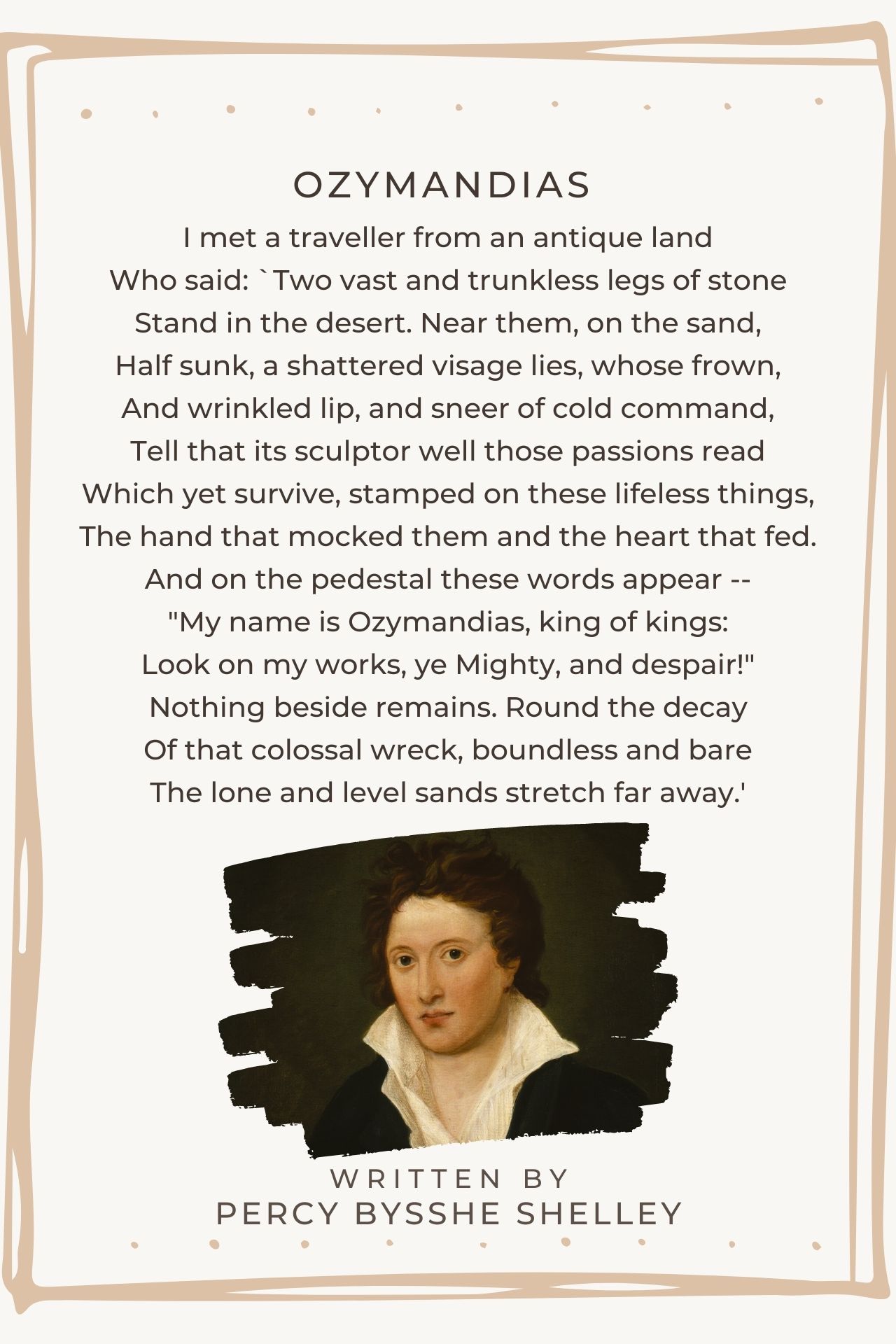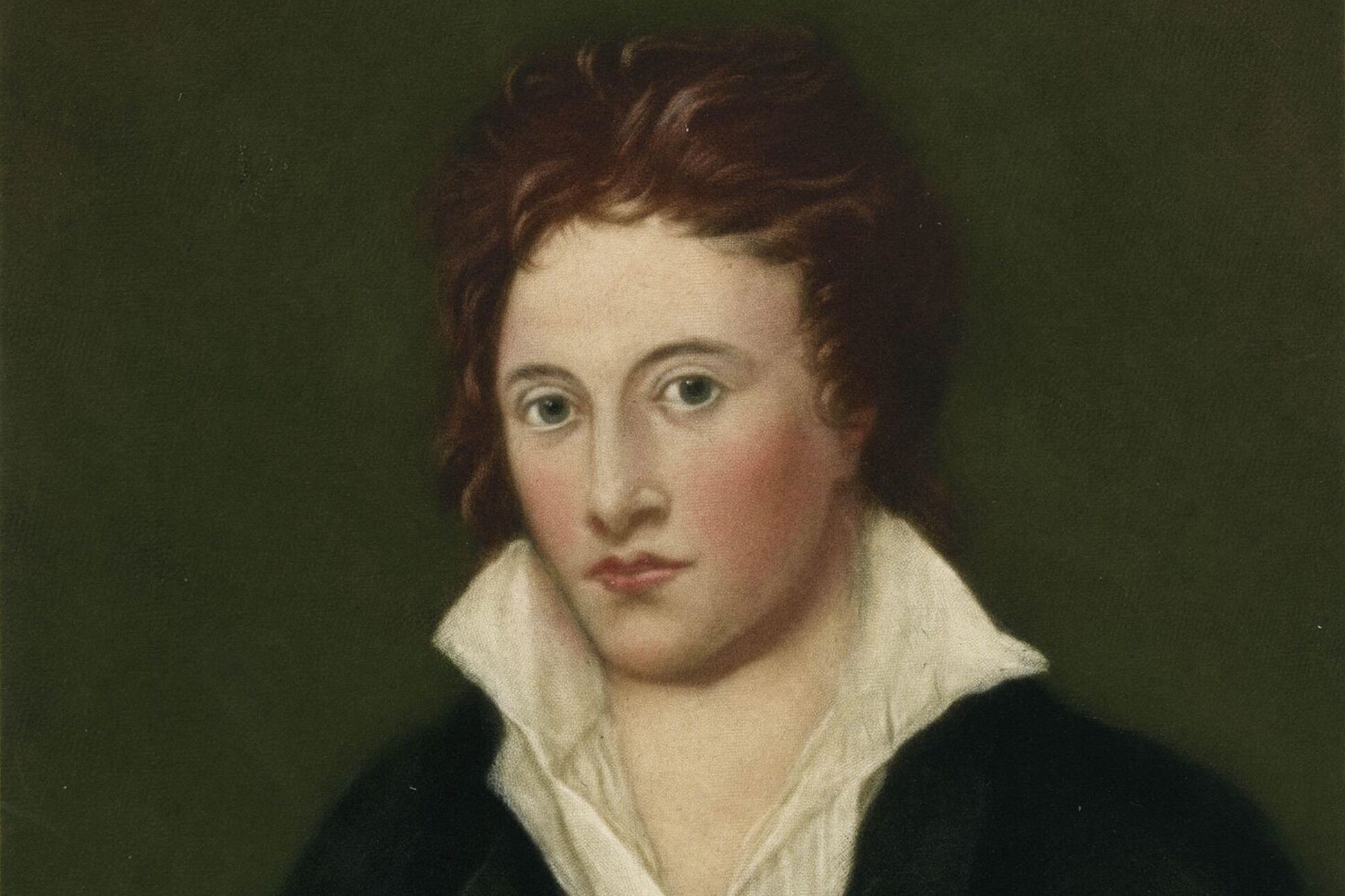Ozymandias Poem by Percy Bysshe Shelley
Ozymandias
I met a traveller from an antique land
Who said: `Two vast and trunkless legs of stone
Stand in the desert. Near them, on the sand,
Half sunk, a shattered visage lies, whose frown,
And wrinkled lip, and sneer of cold command,
Tell that its sculptor well those passions read
Which yet survive, stamped on these lifeless things,
The hand that mocked them and the heart that fed.
And on the pedestal these words appear -
'My name is Ozymandias, king of kings:
Look on my works, ye Mighty, and despair! '
Nothing beside remains. Round the decay
Of that colossal wreck, boundless and bare
The lone and level sands stretch far away.'

I also came here because of Breaking Bad. I like this poem but I think I like The Raven better. Especially the reading done on the Simpsons. I don't think this poem is about Ozymandias at all. I think this poem is about the sculptor that made the stutue and the mutability of art. Unlike Shelley's friend Keats who sees art as an unchanging cold pastoral (see Ode to a Grecian Urn) , Shelley sees art and it's meaning as something that changes even after it leaves the artists hand. When the sculptor made this statue he was attempting to create a statue that evoked fear, awe and wonder. Now many years later this statue has a completely different meaning that the artist did not intend or even contemplate. Yet, though changing art is still imortal. Though time breaks down, decays, and changes the meaning of the statue, it survives. It goes from statue, to a story told to a traveler and then to Shelley's poem living on long after the desert turns the statue to dust.
You really don't fully understand what a towering masterpiece this is, until you try to memorize its deceptively simple 14 lines. It took me a day, and all the time I was getting it wrong and substituting words that were close, but much worse than what he wrote. For instance, if he had started the poem: I met a traveler from an ancient land, or even worse, far away land, how generic the intro would be. But to so antique land...oh, how sublime that word choice. Later I made the mistake of reciting, the vast and lifeless legs of stone. Again, how heavy handed. How shocking and raw to write trunkless here. I then recited, lies a shattered visage, which of course is much less powerful than writing, a shattered visage lies, which builds suspense because you have the impact of the shattered visage first, and only then do you find out what it's doing, (or not, as the case may be) . Then I really botched line seven, saying first: That still exist, which is just pedestrian, and which yet endure, which is also not as powerful as what Shelley wrote, since it doesn't keep the beautiful, hissing, desert-wind s sound alive. I misquoted etched in place of stamped, which is just silly. The phrase stamped on these lifeless things, is so beautiful, it gives one goosies, as does Nothing beside remains, which is such beautiful use of language it ranks up there with And no birds sing. Then he starts reeling the poem in with Round the decay, and the hard d sounds to make everything concrete in our minds, as does the word wreck. Then he takes it all and tosses it into the wind with boundless and bare, and lone and level. The level of genius here is mesmerizing. There is not one useless or superfluous word. Wow! And that doesn't even address the subject matter. Beautiful in form and function.
it is a mockery to a boastful king who over used his power to dominate people without considering their rights as a human..thats the main purpose of the poem...
This poem is included in the syllabus of higher secondary students. All english teachers must have grasped this poem thoroughly. Nothing is there to interpret..A masterpiece.
Like all other fellow country men, the great poet is also rich of fantasy, amazing Sonnet!

Breaking Bad brought me here...